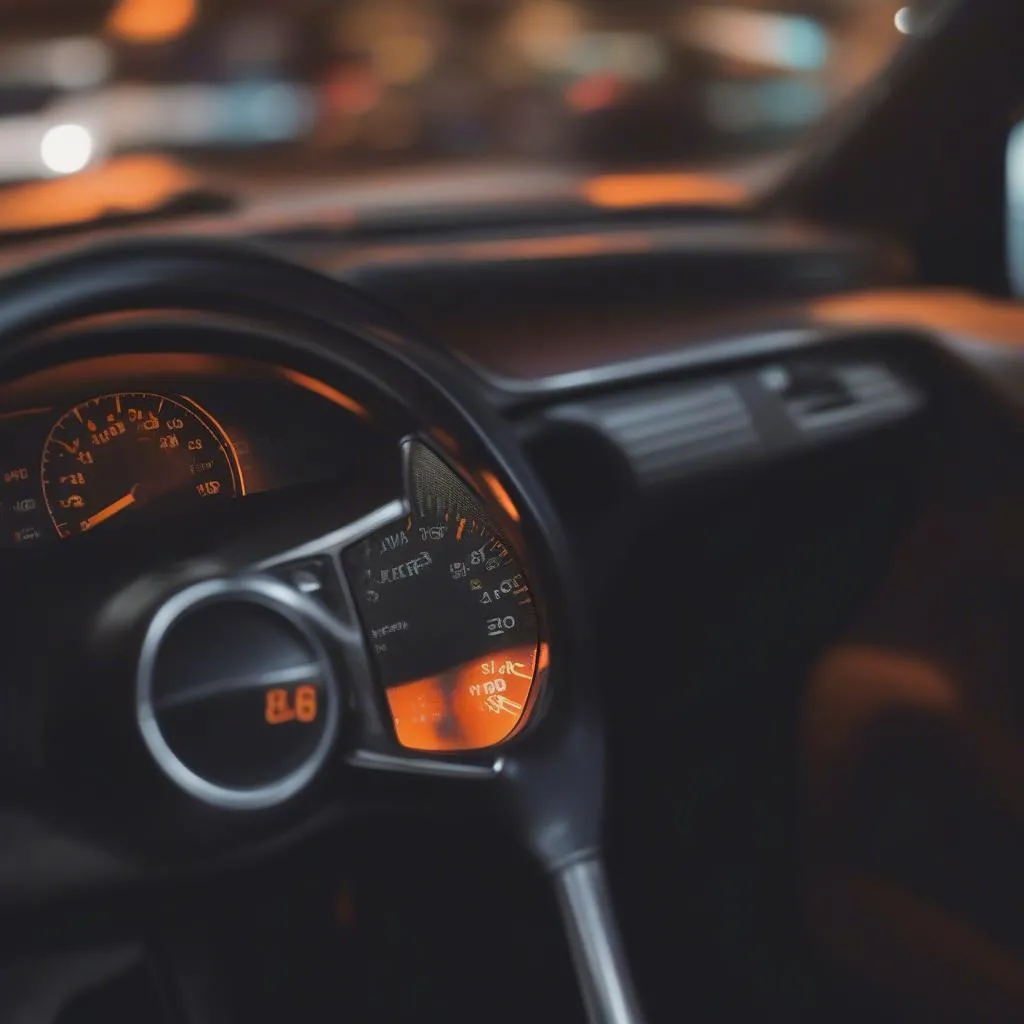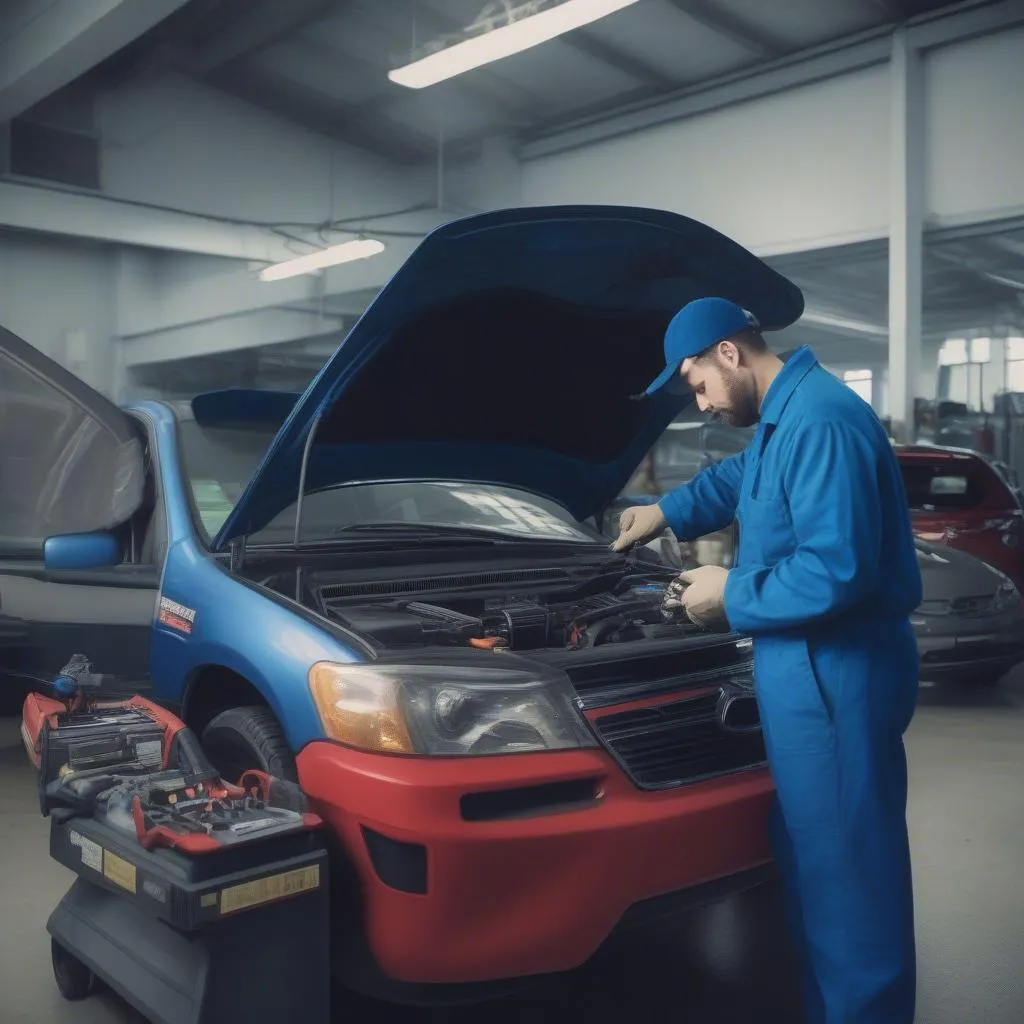“Oh no, not the dreaded check engine light again!” Sound familiar? We’ve all been there. You’re cruising down the Pacific Coast Highway, California, enjoying the ocean breeze in your Audi A4, when suddenly that little yellow icon illuminates on your dashboard, instantly sucking the joy out of your drive. But fear not, fellow drivers! Understanding the most common problems that trigger the check engine light can save you time, money, and unnecessary worry.
Decoding the Dreaded Light: What Does It All Mean?
From a mechanic’s standpoint, the check engine light is like your car trying to have a conversation with you, albeit a slightly cryptic one. It’s a signal from your car’s computer, the Engine Control Unit (ECU), that something isn’t quite right.
This “something” could range from a minor hiccup, like a loose gas cap, to a more serious issue within your car’s emissions system, ignition system, or even the engine itself. Imagine driving a vintage Ford Mustang through the bustling streets of New York City, only to have the check engine light blink on. Ignoring it could mean the difference between a smooth ride and a breakdown in Times Square.
Unmasking the Usual Suspects: Common Culprits Behind the Check Engine Light
Now, let’s shed some light on the usual suspects behind that glowing check engine light:
1. Oxygen Sensor Issues
Think of your oxygen sensors as the lungs of your car’s emissions system. Located in the exhaust system, they monitor the amount of unburned oxygen in your exhaust gases, helping optimize fuel efficiency and minimize harmful emissions. A faulty oxygen sensor can significantly impact your car’s performance and fuel economy, often triggering the check engine light.
2. Ailing Catalytic Converter
If your car’s oxygen sensors are the lungs, then the catalytic converter is the heart of the emissions system. It’s responsible for converting harmful pollutants in exhaust gases into less harmful substances. A failing catalytic converter, often caused by a neglected oxygen sensor issue, can severely restrict your engine’s performance and illuminate that check engine light brighter than a Las Vegas Strip billboard.
3. Malfunctioning Mass Air Flow Sensor
The mass airflow sensor is like the chef of your engine, precisely measuring the amount of air entering the engine to ensure the perfect air-fuel mixture for combustion. A faulty MAF sensor can disrupt this delicate balance, leading to poor engine performance, reduced fuel efficiency, and of course, a glowing check engine light.
4. Spark Plug Troubles
Just like a good set of spark plugs can ignite a great party, they’re essential for igniting the air-fuel mixture in your engine cylinders. Worn-out or faulty spark plugs can lead to misfires, reduced engine power, and yes, you guessed it, a check engine light reminding you it’s time for a tune-up.
5. Loose Gas Cap: The Silent Troublemaker
This might seem like a minor issue, but a loose, damaged, or missing gas cap can be a sneaky culprit behind that check engine light. It can allow fuel vapors to escape, disrupting the fuel system’s pressure and triggering the emissions system warning.
 Car dashboard showing check engine light
Car dashboard showing check engine light
Confronting the Check Engine Light: What To Do When It Turns On
Seeing that check engine light staring back at you can be unsettling, but remember, panic won’t help. Instead, consider these steps:
- Don’t ignore it!: Ignoring a check engine light can lead to more severe engine problems and costly repairs down the road.
- Assess the urgency: Is the light flashing? A flashing check engine light usually indicates a severe issue requiring immediate attention. Safely pull over and contact a mechanic.
- Check your gas cap: It might sound simple, but a loose gas cap is a common culprit. Tighten it and see if the light turns off after a few drives.
- Use an OBD-II scanner: An OBD-II scanner, available at most auto parts stores, can read the diagnostic trouble codes (DTCs) stored in your car’s ECU, giving you a better idea of the problem.
- Consult a trusted mechanic: For a more accurate diagnosis and repair, take your car to a qualified mechanic, especially if you’re experiencing performance issues or the check engine light is flashing.
Frequently Asked Questions about Check Engine Lights
- Can I drive my car with the check engine light on?
While you might be able to drive a short distance with the check engine light on, especially if it’s steady and not flashing, it’s not recommended. Ignoring it can lead to further damage and more expensive repairs.
- How much does it cost to fix a check engine light issue?
The repair cost can range widely depending on the underlying problem. A loose gas cap might cost you nothing, while a failing catalytic converter could set you back a significant amount.
- Can I reset the check engine light myself?
While you can temporarily reset the check engine light using an OBD-II scanner, it’s crucial to address the underlying issue causing the light to turn on.
- Does a check engine light automatically mean my car is unsafe to drive?
Not necessarily. While a flashing check engine light typically indicates a serious problem, a steady light might point to a less severe issue. However, it’s always best to err on the side of caution and consult a mechanic.
 Mechanic inspecting car engine in auto repair shop
Mechanic inspecting car engine in auto repair shop
Don’t Let the Check Engine Light Rain on Your Parade
The check engine light, while daunting, shouldn’t be a source of constant anxiety. Understanding the common causes, taking appropriate action, and relying on the expertise of a qualified mechanic can help you stay ahead of potential problems and keep your car running smoothly for miles to come.
Need help diagnosing a tricky car problem? We’re here to help! Contact our team of automotive experts via WhatsApp at +84767531508 for assistance with diagnostic tools and troubleshooting. We’re available 24/7 to get you back on the road with confidence.
Keep Exploring: Related Car Diagnostic Insights
Looking for more in-depth information on car diagnostics? Check out these helpful resources:
- ABS and Brake Light On But Brakes Work Fine?
- Why Does Check Engine Light Go On and Off?
- Reasons for Check Engine Light
Remember, knowledge is power when it comes to car maintenance. Stay informed, stay proactive, and enjoy the open road!